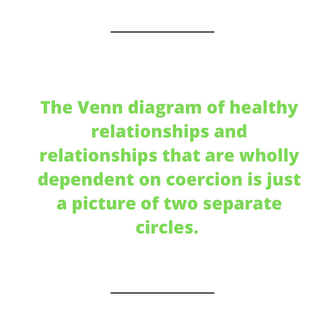Joshua White: Have You Considered Not Being Awful?

(Editor’s Note: PPAI Media’s new “Voices” series introduces the opinions and advice of promo industry influencers on a variety of topics for which they specialize. The opinions belong to the individual writer and may not represent those of PPAI or their respective employer.)
There’s a lot of noise being made about the Federal Trade Commission’s proposed rule that would ban noncompete clauses for employees. The issue is making its rounds in the industry and is considered a controversial one.
It shouldn’t be.
I understand every one of the arguments in favor of noncompetes. I’m a lawyer by training, licensed in three different states, and spent years litigating in this arena. I’m qualified to tell you that your arguments in favor of noncompetes are poor, your perspective is wrong, and your whining is tired.

Look, I’m not saying that there are no circumstances where a noncompete is justified. There are several of them. For example, when an owner sells their company and is fairly compensated for that sale. Or when you have a critically important high-level executive whose inherent knowledge of your business would create an existential threat were they to depart to a key competitor.
Assuming that there is arms-length bargaining between equally situated parties and reasonable compensation changing hands, I think narrowly tailored noncompetes are perfectly fine.
More often than not in our industry, however, that’s not how noncompetes are used. Far too often, you have parties with massive disparities in bargaining power that allows companies to exploit unsophisticated workers who barely understand what they’re signing up for. I would say that’s not the exception. It’s the norm.
I can hear your objections. You’ll say that you need noncompetes to protect your confidential information or to protect your client relationships or that these employees just know too much about the secret sauce of your business. The reality is, every single one of the concerns you’re trying to solve for can be addressed with effectively drafted, enforceable non-solicitation and non-disclosure restrictions.
My suspicion is that you just want noncompetes because you’re afraid of having to compete.
Business is a contact sport. I’m bored by those who pretend that it isn’t. The spirit of competition is at the heart of the American experiment and that spirit is what makes American businesses the best in the world. Tell me you love noncompetes and you’re telling everyone that, at some level, you hate the very idea of America. Not a great look.

What exactly drives your fear of competing to keep your employees happy? Are you so incapable of connecting authentically with your people that your best option is to force unhappy employees to remain trapped in a state of permanent indentured servitude?
The Venn diagram of healthy relationships and relationships that are wholly dependent on coercion is just a picture of two separate circles. I get aggravated when I am forced to briefly sit next to someone who chews loudly. I can hardly begin to conceive of the resentment that you’re infusing into your culture by forcing people to stay in a relationship that they desperately want to escape. That’s not a relationship. It’s a hostage situation.
It doesn’t have to be this way. You can do better. For example, have you considered not being awful?
I get it. You might just be a bad person, running a bad company, lacking either the charisma or self-awareness to do much about either. I won’t sugarcoat it: Those are definitely challenges that you’re going to have work around. But just because you are awful, that doesn’t mean you have to be. You have a choice in the matter.
Honestly, it’s not that hard. Build a good company that gives your people the resources to thrive. Genuinely care about human beings. Like, actually care about them. Be open and vulnerable and lead by example. Challenge your people to explore the outer edges of their comfort zones and help them by illuminating a path to becoming their best selves. Some will disappoint you. Some will choose to leave the nest. That’s OK. Disappointment is the price of admission we pay to pass through the gates of optimism. Put your faith in people anyways. The ones that pay off will more than make up for the ones that don’t. In the process, you’ll build a much healthier culture, a stronger company, and enjoy the added bonus of being someone that you can stand to look at in the mirror.
Take a cue from my friend Joe Sommer of Whitestone Branding. Joe recently announced that Whitestone is tearing up all of its noncompete agreements. Why did he do that? He evolved, and he’s committed to running a company that is constantly evolving, too. Also, he’s very much not awful and highly confident that he can keep employees at Whitestone because they want to be at Whitestone. I’m willing to bet that he’s right.
The point here is not to challenge your opinion on noncompetes. I expect the FTC will take that issue out of your hands soon enough. My point is to challenge the way you think about people, culture, and the role you play in shaping both. If you have the responsibility of making these sorts of decisions, you have the opportunity to embrace an abundance mentality. Doing so will attract better people and get more out of them. You’ll shed the people who don’t want to be there, and you’ll be better for that too.
If you’re just so miserable to be around that your people won’t stay without the threat of legally enforced indentured servitude, try not being awful. You might just surprise yourself.
White is the head of strategy and general counsel at BAMKO as well as a member of the PPAI Board of Directors.

